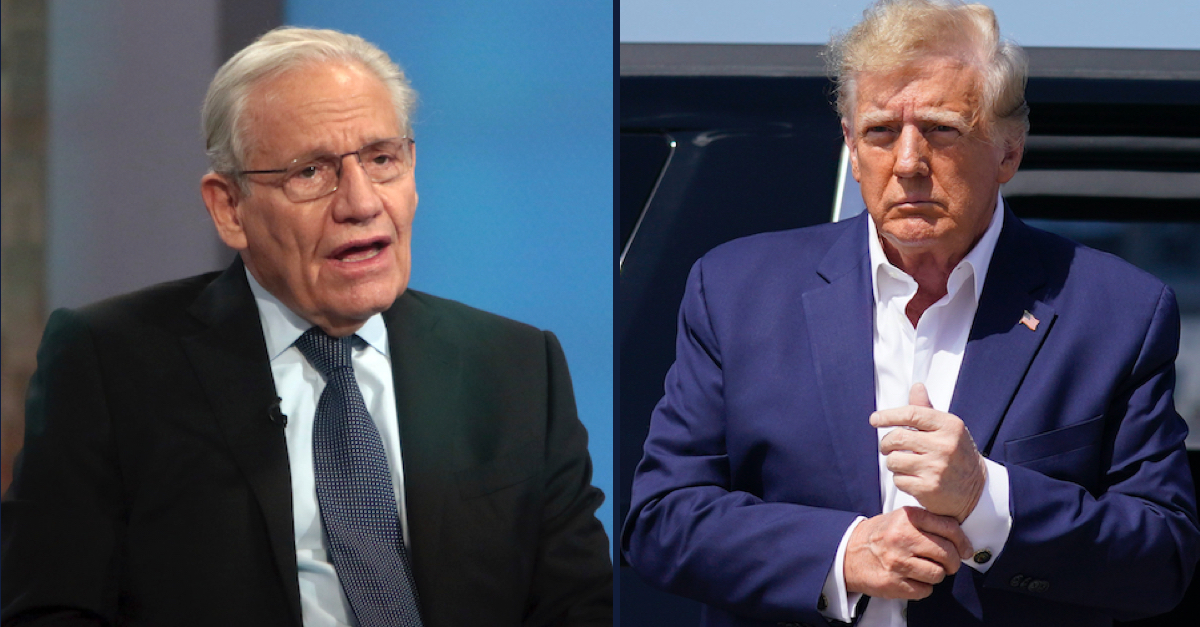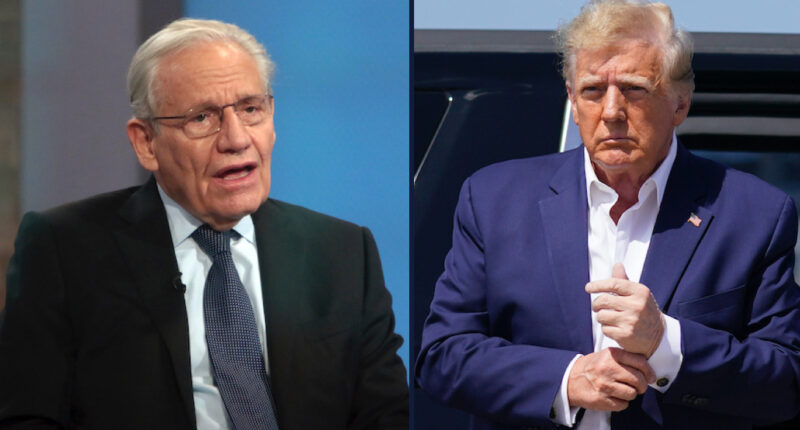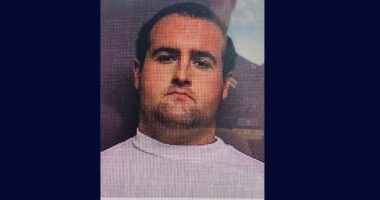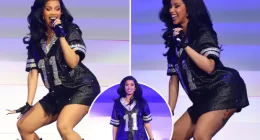
Left: Bob Woodward seen promoting his third book on Donald Trump, Peril, on Good Morning America in New York City on September 20, 2021 Credit: RW/MediaPunch /IPX. Right: Former President Donald Trump arrives to board his airplane for a trip to a campaign rally in Waco, Texas on March 25, 2023 (AP Photo/Evan Vucci).
From George Washington to Joe Biden, U.S. presidents have harnessed the power of the press to reach the populace. Investigative journalist Bob Woodward argues that only one of those commanders-in-chief claimed a copyright interest in his words to a reporter.
Earlier this year, former President Donald Trump filed a $50 million lawsuit against Woodward in a federal court in Florida, over the publication of the audiobook “The Trump Tapes: The Historical Record.” Trump claims that Woodward promised only to use the 19 recorded interviews for the 2020 bestseller, “Rage.” Woodward’s release of the companion audiobook, Trump argues, “systematically, blatantly, and unlawfully usurped” his “copyright interests, his contractual rights, and the rights he holds as an interviewee.”
In a sworn statement, Woodward emphatically denies having agreed to the conditions Trump claims he did.
“Before beginning the interviews, I explained to President Trump that the Interviews would be used in my next book, which would come out in the Fall of 2020,” Woodward testified. “I made no other promises about the book or Interviews, and he made no requests beyond clarifications that the Interviews would not be used in contemporaneous reporting in The Washington Post.”
In a recent memorandum supporting a motion to dismiss, Woodward‘s attorney Elizabeth A. McNamara of Davis Wright Tremaine calls this take on intellectual property unprecedented in the history of the Oval Office.
“No President before Donald Trump has ever claimed to own a copyright in presidential interviews or demanded royalties for their republication,” McNamara wrote in the 44-page memo.
In the introduction of the filing, Woodward’s legal team provides a historical overview of how ex-presidents relied upon the Fourth Estate. The Hartford Courant published Washington’s first inaugural address to Congress, and Abraham Lincoln spoke to The New York Times to convey why he allowed Black troops to join the Union’s fight, the filing notes.
“With modern technology, audiences have become accustomed to hearing their leaders directly via radio, television, online news, and social media,” it continues. “Presidents from Kennedy to Biden have spoken to the nation through interviews conducted by reporters like Walter Cronkite, Barbara Walters, and Bob Woodward. Far from being passive bystanders in these conversations, journalists frame the agenda, ask tough questions, and contextualize Presidents’ responses. Ultimately, this long tradition of candid reporting depends on an axiomatic principle—reflected in copyright law—that the words a sitting President speaks while discussing his duties are not private property, but rather belong to the People.”
Woodward’s attorneys excoriated Trump’s “unprecedented effort to extract private benefit from his public duties.”
“As if on a mission to prove this ‘everything is mine’ thesis, Donald Trump, ‘in his individual capacity,’ asserts that he owns Woodward’s entire Work because it includes words spoken by ‘President Trump, 45th President of the United States of America,”” the filing states. “And President Trump seeks to profit from his public service by demanding Defendants pay him nearly $50 million.”
In addition to Woodward, Trump sued publishers Simon & Schuster and Paramount Global. His attorney Robert David Garson didn’t immediately respond to an email requesting comment.
Read the memo here.
Have a tip we should know? [email protected]









